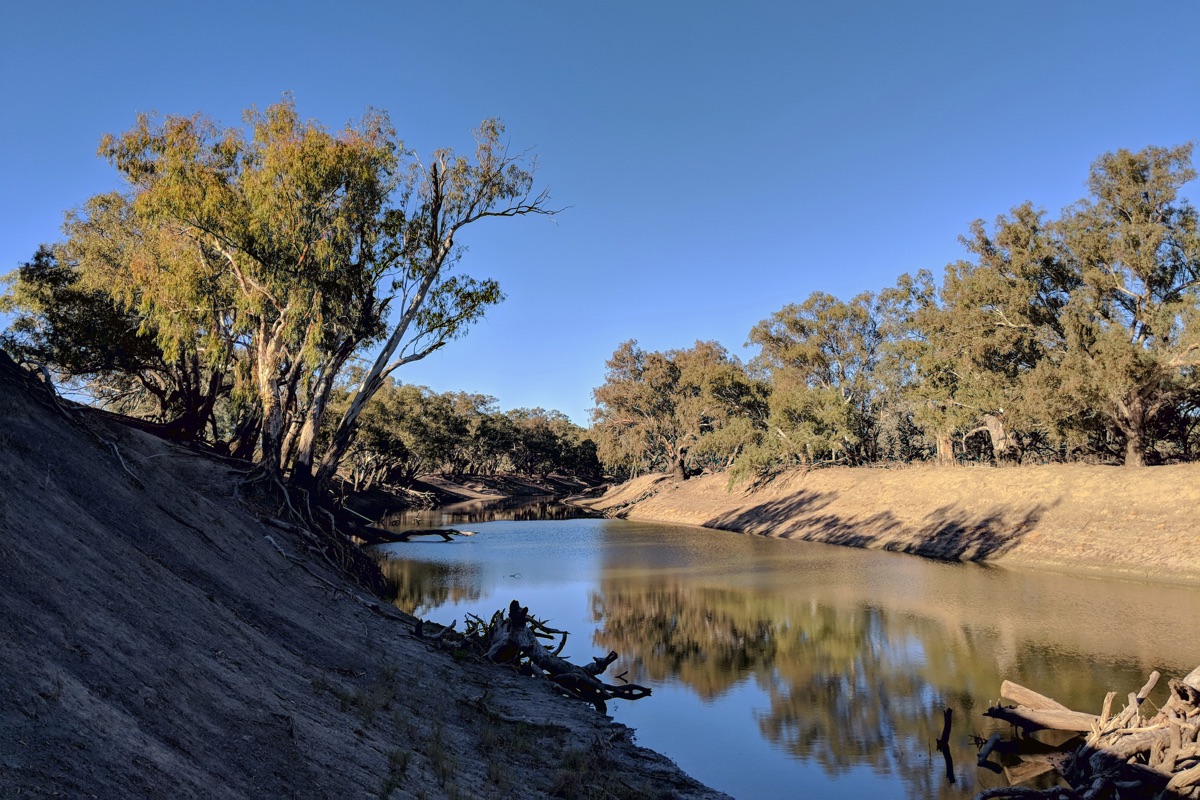Just how effective is the 2750 gigalitres of “environmental water” released in the Murray-Darling river system each year?
A team of University of New England (UNE) researchers has funding of over $6 million from the Commonwealth Environmental Water Office (CEWO) to investigate this controversial question over the next three years.
The team will closely monitor sites on the Gwydir and Warrego-Darling river systems to assess the benefits, and costs, of the environmental water allocated to them.
“We’re part of a research effort across the Murray-Darling Basin that is looking at the response to environmental water allocations in vital areas,” said UNE freshwater ecologist Professor Darren Ryder, who is leading the UNE research team.
“We aim to get a better understanding of how the rivers and floodplains work, and how we can best support them. Right now, for instance, is it better to have environmental water in the dams for later, or should we send it out to drying waterholes so we don’t lose the species that have taken refuge in them?”
“We are not only monitoring and evaluating: an important component of the project is community engagement. We already have a fair idea of what happens when we add water to these riverine environments, but it is important that we communicate what we find to rural communities to help people understand the role of environmental water.”
Along with farmers and rural communities, the researchers will also be consulting closely with Aboriginal communities on the cultural outcomes of environmental water.
“We need to know more about the effects of environmental water on the species that are important to Aboriginal culture,” Prof. Ryder said. “We haven’t done this well in the past.”
Across the Basin, CEWO is supporting university, government and private industry partners working on seven representative areas to gain a better understanding of the effects of environmental water allocations.
UNE’s work in two of these areas is being supported by $6.2 million in funding over three years, which supports four new research positions. The University is working in partnership with the Fisheries section of the NSW Department of Primary Industries, and consultant and UNE adjunct senior lecturer Dr Paul Frazier.
Another $500,000 is being invested into post-doctoral research into the links between water quality and the health of the Basin’s food webs — specifically, the effect of water chemistry on riverine ecosystems.
CSIRO will package the research being conducted across the Basin into recommendations for Basin-wide responses to the use of environmental water under different scenarios.
“Our Basin supports agriculture, irrigation, communities and the environment. We need it to do all of those things, so it makes sense to build systems that are sustainable for people and the environment,” Dr Frazier said.
“The strategies we are currently using are useful for managing on an annual basis, but we really need to be planning for 10-20 years ahead. The variability of our climate is only going to increase under global warming, so we need to get a lot better at adaptive management.”


